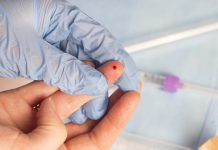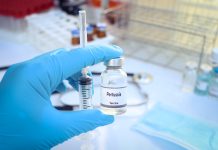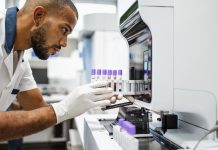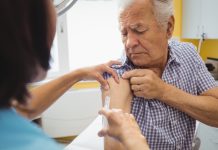GSK is investing £45 m with the Fleming Initiative to launch six “Grand Challenge” research programmes using cutting-edge AI to tackle antimicrobial resistance against pathogens like MRSA, Gram-negative bacteria, and fungi
GSK and the Fleming Initiative have announced a £45 million partnership to launch six AI-driven research programmes to combat antimicrobial resistance (AMR). The project will bring together leading scientists from GSK and Imperial College to apply advanced machine learning to key global threats, including Gram-negative bacteria, drug-resistant Staphylococcus aureus, and invasive fungal infections.
Six new research programmes to tackle AMR
Six major new research programmes, called ‘Grand Challenges’, will utilise some of the best scientific expertise and the latest technologies, including advanced AI, to discover ways to slow antimicrobial resistance (AMR). The programmes will begin in early 2026 and will be fully funded for three years, covering six key themes:
- Driving the discovery of new antibiotics for Gram-negative bacterial infections.
- Accelerating the discovery of new drugs to combat fungal infections.
- Improving understanding of how our immune systems respond to drug-resistant bacteria, beginning with Staphylococcus aureus, to accelerate vaccine research.
- Using disease surveillance and environmental data to create AI models to predict how drug-resistant pathogens spread.
- Conducting a clinical trial to improve how and when antibiotics are prescribed.
- Pull international research data to inform policy and public engagement, advocate for preventative interventions, drive R&D, and get ahead of AMR.
An October 2025 WHO GLASS Report underscored the urgent need for action against the worsening global AMR situation. With one in six bacterial infections caused by antibiotic-resistant bacteria, and annual deaths associated with AMR predicted to rise by 74.5% from 4.71 million in 2021 to 8.22 million in 2050, the time to act is now.
Creating equitable solutions for AMR
The Fleming Initiative, a collaboration between Imperial College London and Imperial College Healthcare NHS Trust, is a global effort to create equitable solutions for AMR. With GSK as a founding partner, pledging funding to tackle AMR worldwide, the Initiative is set to have a significant global impact.
One specific challenge in AMR is tackling Gram-negative bacteria, which pose a major threat to human health. These bacteria, including E. coli and Klebsiella pneumoniae, have a complex cell envelope defence system that prevents antibiotics from exerting their full effect. The partnership will use the power of supercomputers at Imperial’s Drug Discovery Hub, with the help of GSK’s scientists and Agilent Technologies, to develop advanced automation and generate novel datasets on diverse molecules to train an AI/ML model to help design antibiotics for Gram-negative infections.
Additionally, scientists will work together to develop new drugs to combat fungal infections, especially those caused by Aspergillus. Around two million cases of Aspergillus infection occur every year, with mortality rates of 46%. Only four types of drugs currently target this infection, and the partnership between GSK and the Fleming Initiative will use AI to identify new drug targets.
Moreover, a team of experts will begin modelling the human immune response to infection, starting with Staphylococcus aureus, a highly dangerous drug-resistant pathogen. Vaccines targeting this pathogen have failed so far, due to a lack of human-relevant data. The new team will replicate, under strictly controlled, safe conditions, surgical site infections to provide key data on infection progression and the human immune response to S. aureus, to inform new vaccine development.
Professor Lord Ara Darzi, Head of the Fleming Initiative, said: “In the 12 months since we announced our landmark partnership between GSK and the Fleming Initiative, a massive amount of progress has been made. Through our convening power, we have the world-leading expertise, facilities, capacity, and vision in place to be able to launch these ambitious Grand Challenges.
“Today, in the shadow of 80 years since the Nobel prize for the discovery of penicillin, we’re delighted to see this research progress. We hope this research will be a beacon for the global scientific community and highlight the urgent need for collaborative efforts to tackle the rising global threat of antimicrobial resistance.”
Tony Wood, Chief Scientific Officer, GSK, said: “I’m delighted to combine GSK’s leadership in antimicrobial science with world-leading research at Imperial College London. Together, with scaled datasets, emerging drug modalities, and AI-driven models, we will open up new approaches for the discovery of novel antibiotics as well as anticipate and outpace the development of resistance to transform the treatment and prevention of serious infections. Currently, GSK has a promising portfolio of relevant assets in development, many targeting pathogens identified as priorities by WHO and US CDC. We will continue to be a leader in inspiring much more collective action, across industry, academia and policy and I believe our partnership with the Fleming Initiative is an important new step in that direction.”
Professor Hugh Brady, President of Imperial College London, said: “Antimicrobial resistance is a global challenge that no single lab or institution can solve alone. Tackling the rise of drug-resistant infections can only be done by bringing together a wide range of expertise – from across science, industry and policy, alongside public engagement. This is convergence science in action and will ensure antimicrobials continue to work for future generations.”
Professor Tim Orchard, chief executive of Imperial College Healthcare NHS Trust said: “Antimicrobial resistance is one of the biggest challenges we face in the NHS and across the world. Drug-resistant infections are increasingly difficult to treat and pose a growing risk to patients. We urgently need new solutions and interventions for tackling drug-resistant infections, which will only be achieved if we pool our expertise. These ambitious research initiatives are a fantastic example of this type of collaboration and how the Fleming Initiative will benefit both local and global communities.”











